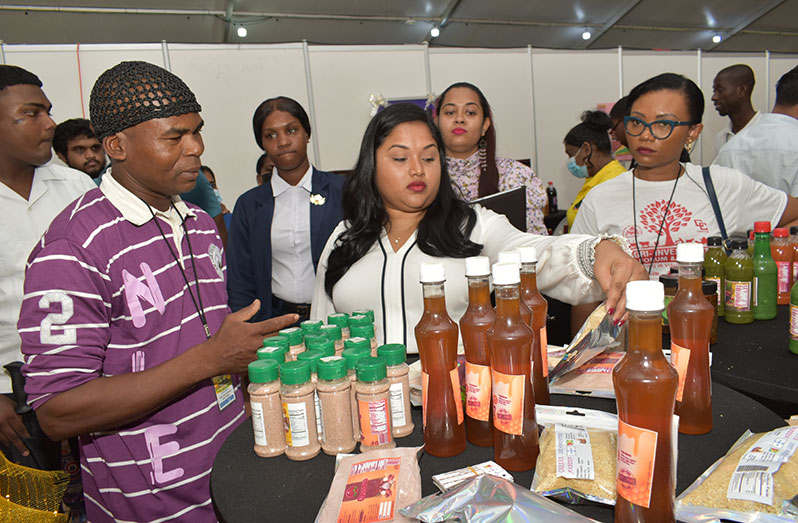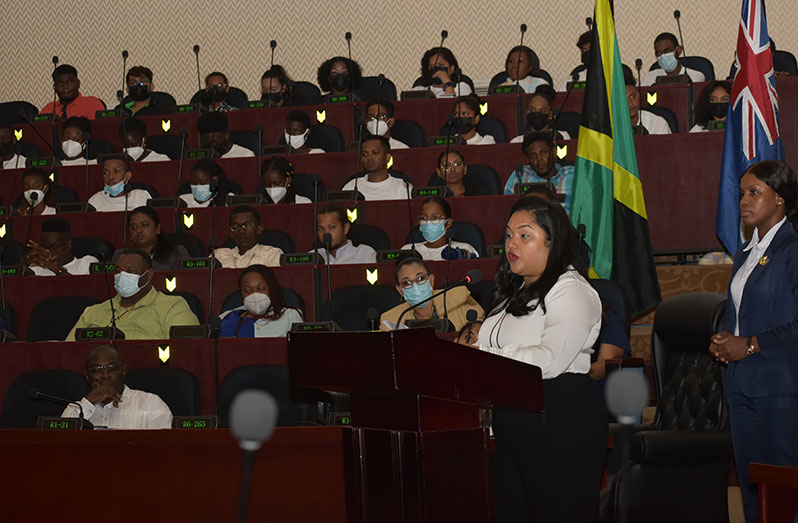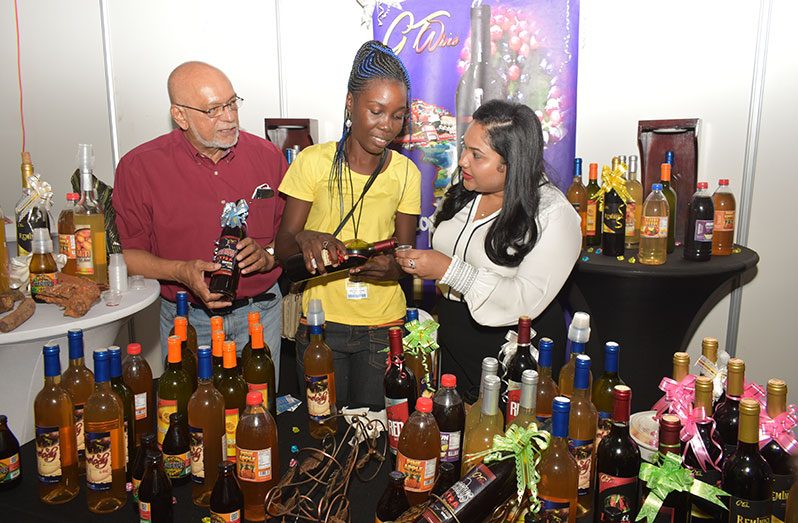–says First Lady Arya Ali
FIRST Lady Mrs. Arya Ali says that regional leaders must play a critical role in stimulating the interest of youth in agriculture by making it an attractive sector.
The First Lady was at the time delivering the keynote address at a forum titled “CARICOM Youth in Agriculture Dialogue” during the final day of the Agri-Investment Forum and Expo at the Arthur Chung Conference Centre.

Mrs. Ali presented alongside CARICOM General-Secretary Dr. Carla Barnett; Caribbean Head of the World Food Programme Regis Chapman; Assistant Director-General of the FAO Dr. Julio Berdegue; and Deputy Director-General of the Inter-American Institute for Cooperation (IICA) Lloyd Day.
The session, which also involved a panel discussion, was moderated by former CARICOM Youth Ambassador Vishal Joseph. According to the First Lady, there is a growing concern that young people have become disenchanted with agriculture.
“Young people have become less interested in this field for a number of reasons, one of which is the perception that agriculture is reserved for those who are unskilled, and is an unstable form of livelihood; nothing can be further from the truth,” the First Lady said.
She added: “Regional leaders in agriculture, therefore, have a critical job to stimulate the interest of our youths in agriculture by making agriculture an attractive sector for our youth. [Restructuring] the way youths view and engage in the agricultural sector is key to significantly increasing employment, improving livelihood, and building rural economies.”

The First Lady called on leaders to leverage technology, education, land rights, access to financial information, resources and the creation of entrepreneur networks to make agribusiness profitable and attractive to youths.
She further underscored that leaders must continue to recognise the importance of youth in the sector, as they have an important role to play in the transformation and development of agriculture, and, therefore, every effort must be made to ensure that they are included in the dialogue about how agriculture will help the Caribbean region to achieve food security in the coming years.
“Youth provide a platform for us to not only discuss, but also explore solutions to help transform our regional agricultural sector; to foster increased productivity and sustainability,” Mrs. Ali noted.
She further noted: “It is no longer a debate of whether, or to what extent, youth should be included in decision-making. Their presence here today is a demonstration of the importance of youth in generating solutions to move our respective countries and regions forward.”
The First Lady noted that while engaging youth in agriculture has been a prominent topic recently, it has always been important one.
“Their involvement and input is critical for a number of reasons, including their exposure and familiarity with new technology,” she said.

Meanwhile, Dr. Barnett during her remarks, issued a strong message to the youth of the region that “the region needs you and the region needs you now.”
“This is not the usual cliché about you being the future. Your [the youths] immediate involvement and action is integral to how this community can achieve the goal of ensuring its food and nutrition security into the future. The future is what this is all about. You are not just the future in reality, you are the present,” Dr. Barnett noted.
Dr. Barnett pointed out that some of the highest paying jobs in the world are in the agriculture sector, and youths must be reminded of this as they think of their future and consider areas to specialise in.
“Agriculture goes well beyond farming, and is one of the areas which involves a wide variety of employment opportunities. It lends itself to self-employment, and becoming your own boss. With the correct lining support and effort, you can reap rewards within a reasonable time frame,” the CARICOM Secretary-General said.
The need for youth to become integrally involved in agriculture, specifically because of their innovative ways of thinking and their affinity for technology and technology oriented solutions, were further underscored by Chapman, Berdegue, and Day.
Chapman, in his remarks, noted that youth constitute a large section of the persons within the Caribbean region who are affected by food insecurity, hence the critical need for their involvement.
“We need to look at solutions that the youth have to offer. We need to listen to the youth and identify what some of the solutions are. Now more than ever youth need to be part of the solution to the various challenges that we’ve been discussing,” Chapman noted.
The World Food Programme is currently collaborating with CARICOM on a youth initiative called “I Am Agriculture”, which is about hearing more from youth on the importance of agriculture across the Caribbean.
Berdegue, in his remarks, noted that it is important for future dedicated sessions to include youth and women into the agriculture conversation.
The three-day Agri-Investment Forum and Expo is part of the CARICOM “25 by 25” initiative, whereby the region is intent on reducing the extra-regional imports of food commodities by 25 per cent by 2025 to establish safer food security.



.jpg)









